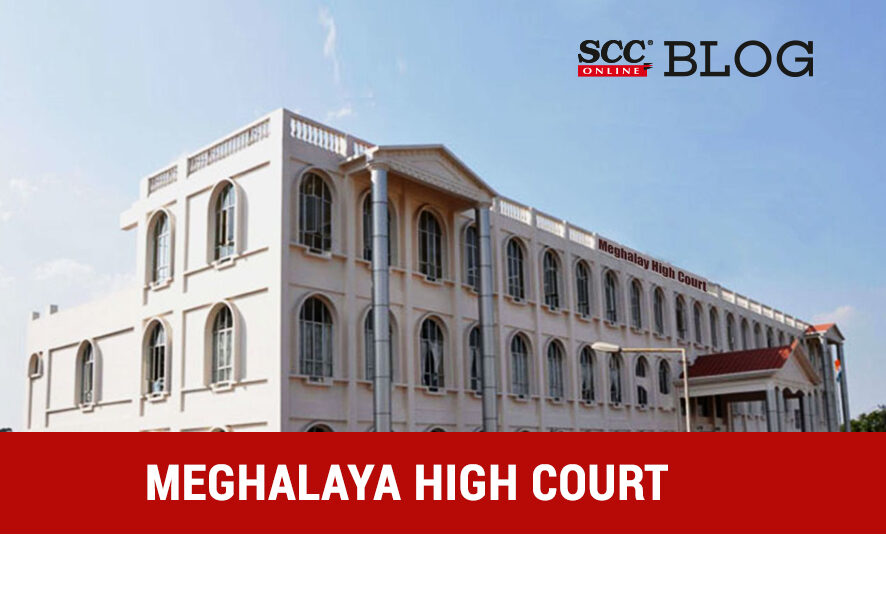Meghalaya High Court: In a criminal petition filed under Section 482 Code of Criminal Procedure, 1973 (‘CrPC’) with the prayer for the exercise of the inherent powers of the Court to quash the proceedings against the petitioner under Section 307 of the Penal Code, 1860 (‘IPC’), the Single Judge Bench of W. Diengdoh, J. allowed the petition and discharged the petitioner from the said liabilities, quashing the FIR filed against the petitioner under Section 307.
Background
The petitioner stopped at his father-in- law’s residence to collect his pet cat. The father-in-law of the petitioner was holding the cat and suddenly threw the cat into the bushes which enraged the petitioner. As a result, the petitioner hurt his father-in-law with a dao (Khukri) leading to severe injuries and perforation on the left side of his abdomen. Thereafter, applicant’s brother-in-law lodged a First Information Report (‘FIR’) against the petitioner under Sections 307 and 326 of the IPC which is non compoundable offence. Later, a deed of compromise was executed between the father-in-law, petitioner and the brother-in-law, and they had amicably settled the matter on realization that the incident occurred only due to misunderstanding and provocation which caused the reaction in the heat of the moment but there was no intention to cause any harm, much less attempt to murder.
The issue before the Court is whether in a case involving an offence under Section 307 of the IPC, on a compromise reached between the parties and on the indication not to pursue further with the criminal proceedings before the Trial Court, necessary and effective order can be passed resorting to exercise of inherent power under Section 482 CrPC?
Decision
The Court referred to Narinder Singh v. State of Punjab, (2014) 6 SCC 466wherein principles were laid down by the Supreme Court by which the High Court’s would be guided in giving adequate treatment to the settlement between the parties and as to how power under Section 482 of the CrPC can be exercised while accepting such settlement or rejecting the same, and it was held that although Section 307 of the IPC falls under the category of serious offences still the High Court would not rest its decision merely because there is a mention of the Section 307, it would be open to the High Court to go by the nature of injury sustained, whether such injury is inflicted on the vital/delegate parts of the body, nature of weapons used etc. The Court relied on the observation of the Supreme Court in Narinder Singh (supra), wherein it was stated that, “at this stage, the Court can also be swayed by the fact that the settlement between the parties is going to result in harmony between them which may improve their future relationship.”
The Court said that an offence under Section 307 IPC is indeed a serious offence, however, from the narration of the petitioner as to how the incident occurred, there was an element of provocation on the part of the victim who had thrown the cat of the petitioner in the bushes, the existence of frayed tempers cannot be ruled out and in the heat of the moment, the alleged altercation must have taken place. Therefore, the he Court said it was prima facie clear that the act of the petitioner was not premediated or with the intention and knowledge that the same would cause death.
Further, the Court noted that the whole episode revolved around family members who considered it prudent to settle the matter by way of the Compromise Deed, therefore, the Court said that it would have an impact in the proceedings before the Trial Court.
Therefore, after considering the peculiar facts and circumstances of the case, the Court allowed the petition and the prayer for exercise of power under Section 482 CrPC was acceded to and, the petitioner was discharged from all the liabilities. The FIR and the subsequent proceedings against the petitioner were set aside and quashed by the Court.
[Shri Khrir Lyngkhoi v. State of Meghalaya, Criminal Petition No. 33 of 2023, Order Dated: 12-06-2023]
Advocates who appeared in this case :
For the Petitioner: Advocate P. Yobin;
For the Respondents: Assistant Attorney General N.D. Chullai, Additional Senior Government Advocate A.H. Kharwanlang, Advocate F.L. Iawbor.




